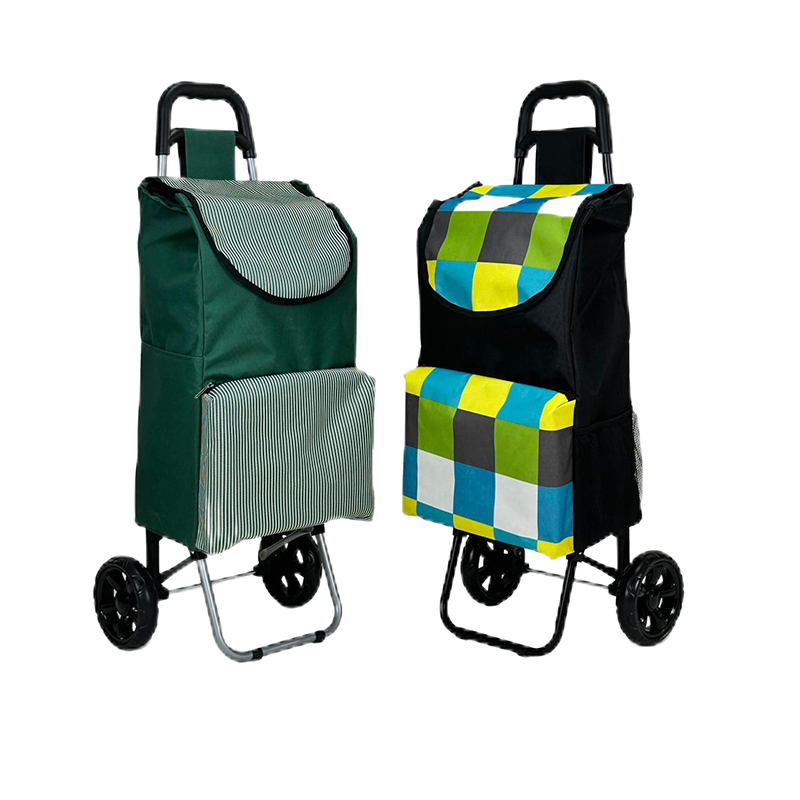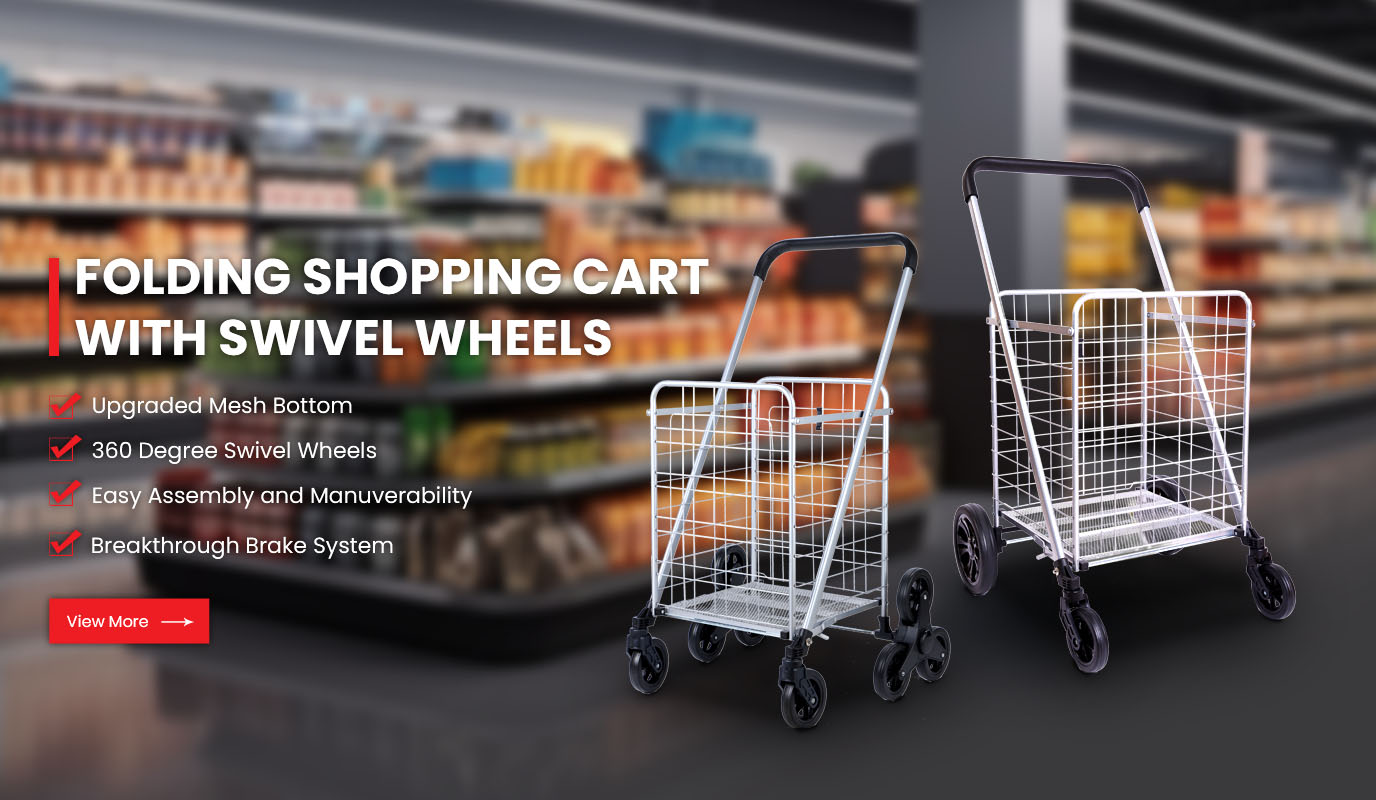How Do Chinese Manufacturers Prove The Compliance Of Raw Material Traceability?
Analysis of the policy risks of "Xinjiang Cotton" in Europe and the United States
Since the Uyghur Forced Labor Prevention Act came into effect in 2021, the global supply chain has set off a "compliance storm" against Xinjiang cotton. The bill assumes that all Xinjiang products involve forced labor, and unless the company can provide "clear and credible evidence" to prove its innocence, the goods will be seized by the US Customs. The European Union followed suit and passed the "Corporate Sustainability Due Diligence Directive" in 2023, requiring companies to trace the source of raw materials and assume joint and several liability.
Taking the pull-along shopping trolley as an example, if its canvas, cotton handles and other parts contain cotton products, it must provide a full-chain traceability certificate from cotton planting to finished products. According to US Customs data, household goods accounted for 32% of the Chinese goods seized due to Xinjiang cotton issues in 2023, of which hand-pull Shopping Cart-related products accounted for 15%.
Supply chain transparency: cracking the core code of traceability compliance
1. The connotation of supply chain transparency
Supply chain transparency refers to the complete information that companies disclose about the source of raw materials, production processes and social responsibility performance. For pull-along shopping trolley manufacturers, "four-level penetrating traceability" needs to be achieved:
Level 1: Cotton planting site coordinates, grower information;
Level 2: Ginning plant processing records and transportation tracks;
Level 3: Textile plant yarn production batch number;
Level 4: Finished shopping cart and raw material batch binding relationship.
2. Three elements of traceability compliance
Data granularity: GPS positioning and acquisition timestamp accurate to each bag of cotton;
Cross-chain verification: blockchain evidence + third-party satellite remote sensing image cross-verification;
Human rights audit: BSCI or SMETA certification to prove no forced labor.

Compliance breakthrough strategy for Chinese manufacturers
1. Establish a full-link digital traceability system
A Jiangsu pull-along shopping cart manufacturer achieved compliance through the following steps:
Internet of Things transformation: Distribute smart sensors to cooperative farmers in cotton-producing areas outside Xinjiang to collect cotton planting data in real time.
Blockchain evidence: The weight list, inspection report and other data of the cotton processing link are uploaded to the chain to generate an unalterable "digital passport".
Finished product coding: The canvas tag of each pull-along shopping trolley is embedded with an NFC chip, which can be traced to the coordinates of the cotton field by scanning the code.
Results:
The customs clearance rate in the United States increased from 23% to 89%;
Walmart's order volume increased by 45% year-on-year, becoming its core supplier in Asia.
2. Data sovereignty and security sharing
Private cloud deployment: self-built data middle platform stores supply chain information to avoid the risk of data leakage on third-party platforms.
Graded authorization: Open "data reading permissions" to customers, such as buyers can view cotton origin certificates, but cannot download original data.
Dynamic desensitization: Parts involving farmers' personal information are automatically encrypted in compliance with EU GDPR requirements.
3. Third-party certification and geographical isolation
International certification endorsement: Passed the "No Forced Labor Certification" of SGS in Switzerland, and the audit scope covers 9 cotton-producing provinces outside Xinjiang.
Geographically isolated production: set up a "non-Xinjiang cotton special line" to physically isolate the entire process from raw material storage to finished product delivery to ensure zero Xinjiang cotton mixing.
Future challenges and industry inspiration
1. High technology costs
It takes more than 5 million yuan to build a traceability system covering 100,000 farmers, and small and medium-sized enterprises face financial barriers. Solutions include:
Government subsidies: Apply for the "Special Fund for Supply Chain Resilience Construction" of the Ministry of Commerce;
Alliance sharing: The industry jointly builds a traceability platform for non-Xinjiang cotton and shares development costs.
2. Geopolitical uncertainty
Europe and the United States may expand sanctions to alternative materials such as polyester and man-made fibers. Enterprises need to:
Diversify their layout: Set up factories in Southeast Asia and use local raw materials to produce pull-along shopping trolleys;
Standard pre-research: Connect with ISO 26000 social responsibility standards in advance to build a compliance firewall.
3. Consumer cognitive game
Third-party surveys show that 68% of European and American consumers are willing to pay a premium for "transparent supply chain" products. Enterprises should transform compliance investment into brand assets, for example:
Traceability visualization: Embed a mini screen in the product packaging to play the cotton planting situation in real time;
Carbon credit incentives: Consumers scan the code to accumulate carbon credits, which can be exchanged for shopping discounts.
The Xinjiang cotton controversy is both a challenge and a catalyst for China's manufacturing upgrade. Through digital traceability, third-party certification and geo-isolation strategies, manufacturers of products such as pull-along shopping trolleys can not only avoid risks, but also win global trust with transparency. In the future, supply chain compliance capabilities will become a more core competitiveness than cost control - whoever controls data sovereignty will be able to define new trade rules.



